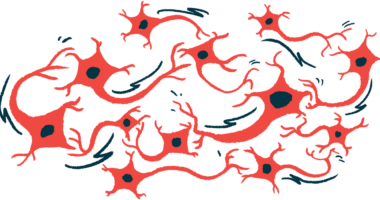Voyager Shares Promising Pre-clinical Data About ALS Therapy Candidate VY-SOD101

Voyager Therapeutics presented new data from a study in an animal model of its clinical candidate VY-SOD101, showing the therapy is effective as it targets the most common cause of familial amyotrophic lateral sclerosis (ALS).
The presentation, along with another preclinical program data presentation on a Huntington’s disease therapy candidate, took place at the American Society of Gene and Cell Therapy (ASGCT), May 16-19 in Chicago, Illinois.
The data on VY-SOD101, the ALS drug candidate that targets the superoxide dismutase 1 (SOD1) gene, were presented in a poster titled “Selection of an AAV Gene Therapy Targeting SOD1 for the Treatment of SOD1-ALS.”
Mutations in the SOD1 gene are associated with motor neuron loss and account for approximately 20 percent of inherited ALS cases worldwide.
Intrathecal (injection into the spinal canal, IT) of VY-SOD101 using an AAV gene therapy vector in preclinical models of ALS and canine models of canine degenerative myelopathy (a disease similar to ALS) has been effective in reducing the levels of toxic mutant SOD1. Safety assessments of VY-SOD101 indicate it also is well-tolerated.
At this year’s ASGCT meeting, Voyager presented new data on the effectiveness and tolerability of VY-SOD101 in non-human primates four weeks after IT administration. VY-SOD101 lowered SOD1 expression by 78 percent in spinal cord motor neurons and was found to be well-tolerated with no negative effects on body weight, clinical signs, clinical pathology, cerebrospinal fluid chemistry, total cell counts, or pathology of the spinal cord or liver.
Voyager is conducting further optimization of VY-SOD101 delivery in large animal models with results expected in the second half of this year.
Voyager also presented data on VY-HTT01, its preclinical therapy candidate for Huntington’s disease in a presentation titled “Pharmacology and Safety of VY-HTT01, an AAV miRNA Gene Therapy Targeting Huntingtin for the Treatment of Huntington’s Disease”.
Tolerability assessments five weeks after VY-HTT01 injection indicated that VY-HTT01 was well-tolerated in non-human primates with no negative changes in clinical pathology or histopathological findings.
“Voyager’s multiple preclinical programs continue to progress and this year’s ASGCT meeting revealed data demonstrating robust lowering, or knockdown, of disease-causing genes for our ALS and Huntington’s disease programs and good tolerability of these approaches,” Dinah Sah, PhD, Voyager’s chief scientific officer, said in a press release.
Similar to VY-SOD101, Voyager also is optimizing delivery for VY-HTT01, results of which also are expected in the second half of 2018.
“These results establish the potential of our gene therapy constructs to suppress the genetic cause of disease as we move forward into planned clinical trials. Efforts to further optimize delivery for our ALS and Huntington’s disease programs are underway, and we plan to provide these results during the second half of this year,” Sah said.






